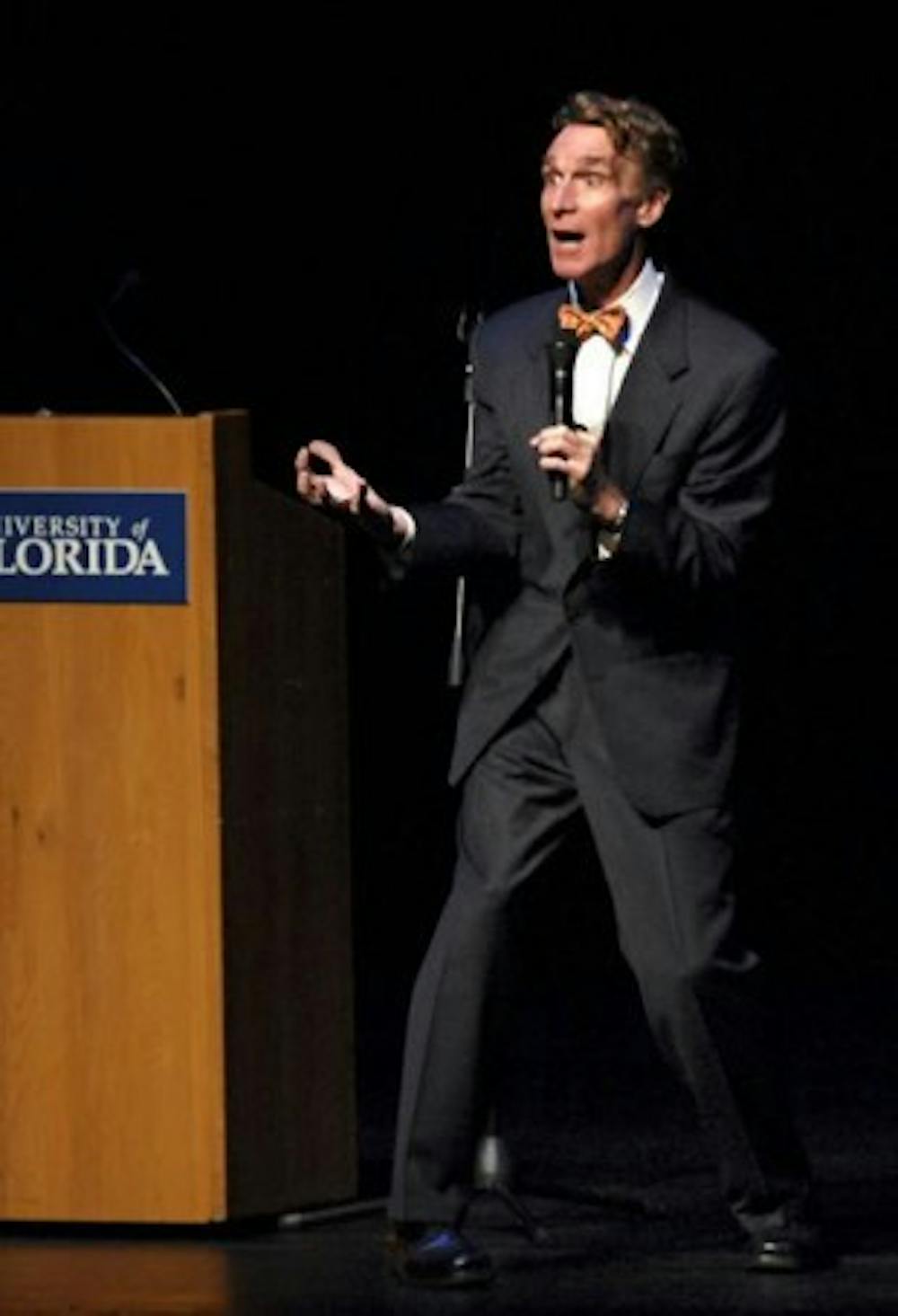As Bill Nye "The Science Guy" emerged onto the stage of the Phillips Center for the Performing Arts on Tuesday night, he was met with wild screams and a standing ovation.
The famous TV personality spoke to an auditorium filled beyond capacity and then took questions from the audience.
Nye, whose popular show "Bill Nye the Science Guy" aired on PBS during the mid-'90s, spoke about science topics such as global warming and Mars exploration. He also told stories about his family, his own work in science and his hope for the next generation of scientists.
Throughout the presentation, Nye injected his own brand of light-hearted comedy.
By 7:30 p.m., the 1,700 allotted tickets had been claimed, and about 200 people had congregated to watch the show simulcast in the lobby and outside, where a projector had been set up on the lawn.
Jared Hamil, a political science junior, joked that Nye was the "public-science-education system" for a generation.
"The reason why there was such a high turnout was because people recognize Bill Nye as a father figure, an authority on science," he said.
Nye began with a discussion about the exploration of Mars and his involvement with NASA and the Mars Exploration Rovers. He half-jokingly encouraged the younger generation to visit the red planet.
Nye also spoke about the necessity for using alternative energy resources, such as electric fuel cells for cars, solar-powered water heaters and wind energy.
He approached the subject of global climate change in typical "Science Guy" style.
"I wouldn't bring this up, except we're all going to die!" he said.
While displaying pictures of smog-filled streets in Los Angeles and Beijing, Nye said the Earth cannot survive if China begins to use resources as heavily as the United States.
"We are going to need two more Earths, and we can't have that," he said. "They're too hard to get."
Nye said that the next generation of scientists, engineers and leaders have a lot of opportunities to change the world.
For more than 15 years, Nye has worked to popularize science and make complex concepts captivating for kids and adults.
"I used to watch Bill Nye's videos when I was in elementary school," said Gina Rivera, an elementary education senior. "If I could keep those and show them in my classroom, it would be a great asset."
Paul Hapeman, a UF lecturer in biology, said Nye's approach to science education for children is critical.
Nye has made science accessible to different age groups, he said.
"I think the contributions that Bill Nye has made to science education are extremely valuable," he said. "Science education, at times, requires finesse."
Darin Acosta, UF professor of physics, agreed. He said science might sometimes come off dry but that it doesn't have to be that way.
"I think you've got to get the kids interested," he said. "If they go into middle school or certainly high school with a bad impression or no impression of science, then we're selling ourselves short."
(Nicole Safker / Alligator Staff) Scientist and TV personality Bill Nye gestures during his speech at the Phillips Center in 2007.






